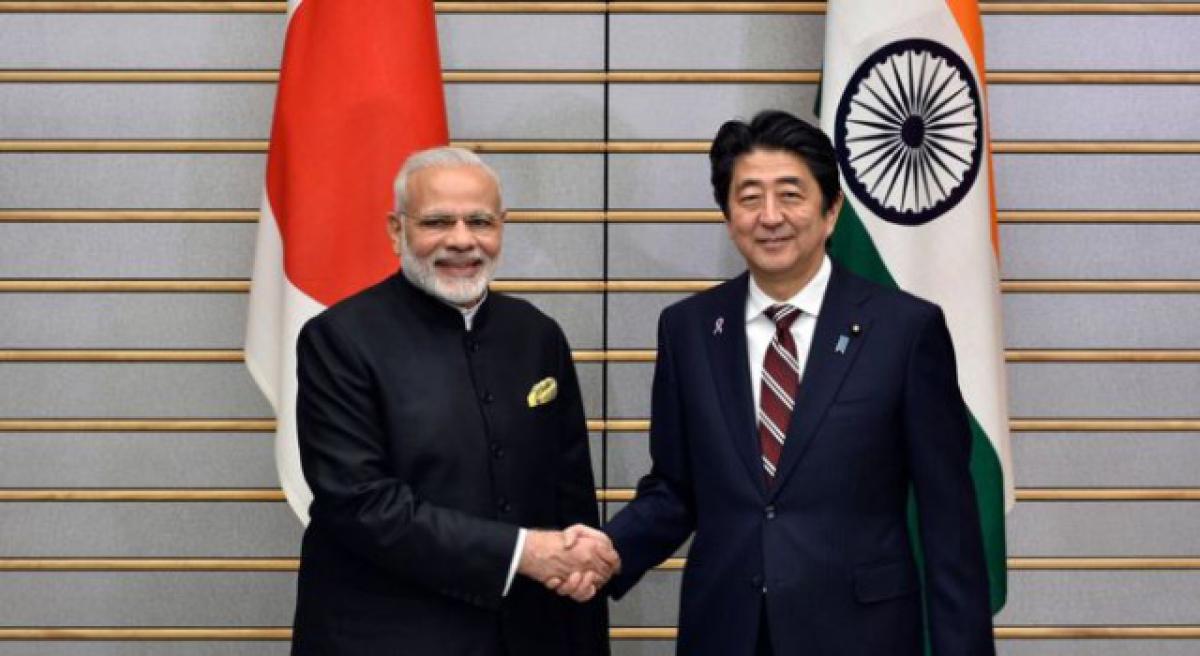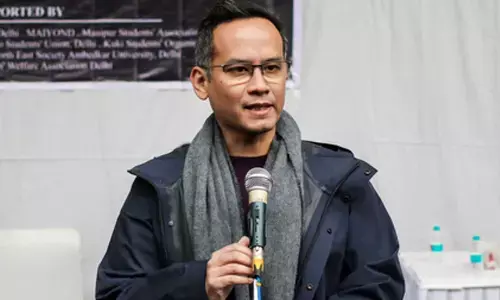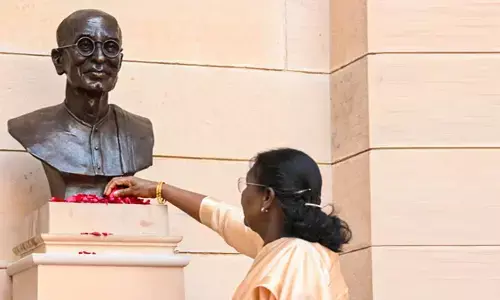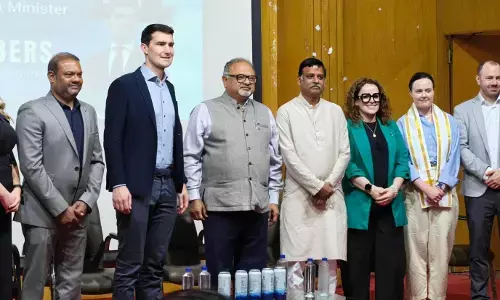Triumphant victimhood

Ramachandra Guha: Triumphant victimhood, History in the Making , J H Elliot makes an interesting distinction between two different kinds of nationalist ideologies.
 In his recent book, History in the Making , J H Elliot makes an interesting distinction between two different kinds of nationalist ideologies. On the one hand, there is the " chosen nation" syndrome, where a country is said to have special " spiritual, biological, or racial characteristics" that shall make it dominant in global affairs.
In his recent book, History in the Making , J H Elliot makes an interesting distinction between two different kinds of nationalist ideologies. On the one hand, there is the " chosen nation" syndrome, where a country is said to have special " spiritual, biological, or racial characteristics" that shall make it dominant in global affairs.
On the other hand, there is the "victim nation" syndrome, where a poor or defeated country tends to attribute its " misfortunes to others and to ignore or disregard failings closer to home". Elliot is a scholar of Europe and North America, and his examples come naturally from those continents.
At various points in their histories, the Spaniards, the British and the Americans have thought of themselves as the nations chosen by god to lead the world out of darkness into light. However, the Poles, the Serbs and the Catalans have seen themselves in very different terms — as brave, persecuted people whose territory and liberties were snatched away by perfidious foreigners.
How does Elliot's formulation resonate with the nations of South Asia? Pakistan is very clearly a " victim nation". Those who led the movement for a Muslim homeland in the 1940s did so on the grounds that if India was to be given independence as a single country, the Hindus in general — and the wily Brahmins and the greedy Banias in particular — would persecute those of other faiths.
Six- and- a- half decades after the creation of Pakistan, a sense of victimhood persists. Many Pakistanis still blame foreigners for their troubles.
Some demonise India, while an equal (or possibly greater) number demonise America. The bad Hindu neighbour and the worse Christian superpower are held responsible for sectarian violence, political instability, economic insecurity, and more-or-less everything else.
Bangladesh also originated out of a sense of victimhood. From the 1950s, there was resentment in East Pakistan over discrimination against the speaking and writing of Bengali. The Bengalis also complained of economic exploitation by West Pakistan. These sentiments gave rise to a wider movement for political separation. The protests were suppressed by the Punjabi- dominated Pakistani army, leading to a largescale flight of refugees into India.
Eventually, the Indian Army intervened, and in December 1971 the new nation of Bangladesh was born. Forty- two years after Independence, Bangladesh remains to some extent a victim nation. The memories of Pakistani brutality persist, and are often invoked in popular discussion.
To these are added complaints of more recent origin, against the overbearing attitude of Big Brother India. Even so, my sense is that the Bangladeshi intelligentsia is more willing to acknowledge the domestic sources of their nation's problems. Witness the vigorous civil society organisations in the country, which have done groundbreaking work in microcredit, rural healthcare and women's education.
That the social work sector is so much weaker in Pakistan is partly a consequence of the continuing tendency of Pakistanis to blame other nations for their misfortunes.
What of Indian nationalism, then? At least as enunciated by its leading thinkers, it was not animated by a blind or excessive sense of victimhood. Claims for Swaraj from the British raj did not deflect reformers from the need to cure the manifest ills of their society.
Late 19th-century thinkers like Gopal Krishna Gokhale and Jyotiba Phule knew that discrimination against low castes and women was not the fault of the white colonizer, but a product of traditional Indian customs and practices.
This open- minded orientation was carried forward by influential nationalists in the 20th century. Rabindranath Tagore argued that Indians should glory in the illumination of lamps lit everywhere in the world.
When, in the 1920s, Gandhi's movement seemed to be taking a xenophobic turn, the poet issued the Mahatma a series of stinging rebukes, which hit their mark. Gandhi began a course of self- correction, which led him to stop demonising Western ideas and institutions. By the 1930s, he was saying that, after Independence, he would " love" to see India become an " equal partner with Britain, sharing her joys and sorrows". The nationalism of Gandhi and Tagore was neither based on a sense of persecution, nor on a sense of cultural or racial superiority. The India they represented — the India they hoped to create and shape — was neither a " victim nation" nor a " chosen nation". However, even in their lifetime their perspective was not uncontested.
Their undogmatic approach was challenged by the political tendency that we now call " Hindutva ". In the 1930s and 1940s, this was associated, above all, with two individuals and two organizations — V D Savarkar of the Hindu Mahasabha and M S Golwalkar of the Rashtriya Swayamsevak Sangh.
Hindutva was politically marginal in the last decades of colonial rule, and politically ineffective in the first decades of independent India. However, from the 1980s it has steadily gained ground, with its representative organisations coming to power in many states, and between 1998 and 2004 at the Centre itself. Now, after a decade where a corrupt and cronyist Congress regime controlled the Union government, the 16th general elections have once more brought a party based on Hindutva to power.
How do we assess Hindutva in terms of the categories offered by J H Elliot? At first sight, it seems to be a classic case of the " victim nation syndrome". The memories Hindutva stokes are of suffering and persecution at the hands of foreigners. So, Hindutva ideologues talk, and talk again, of the 11th-century raid on the Somnath Temple by Mahmud of Ghazni, the 17th- century imposition of the jiziya tax by Aurangzeb, the defeat at the hands of Clive at Plassey in the 18th century, the imposition by Macaulay of English as the medium of instruction in the 19th century, the creation of Pakistan (by a malign Jinnah, aided by a foolish Nehru) in the 20th century.
This meta- narrative of Hindutva seeks, says Elliot, " to impute all the community's misfortunes to others and to ignore or disregard failings closer to home". In this respect, it partakes of the victim nation syndrome. On the other hand, there is also an aggrandising aspect to Hindutva ideology.
So, it is claimed that the Vedas are the oldest holy book, the Upanishads and the Gita the most profound philosophical texts. It has been even suggested that ancient Hindus were the first great scientists — witness their astonishing talents in astronomy and their invention of the number, zero.
Many Hindutvavadis are convinced that if the Bharatiya Janata Party is in power for a decade or more, India shall become a global superpower. To be sure, the country is currently economically backward and politically weak. Yet, Hindus are (so the argument runs) heir to a cultural tradition superior to those of other civilisations or nations. Once they are in control of their own destiny, Hindus shall become powerful and rich, and remake the world in their image.
Someone who believed that Hindus were born to rule the world was Shyama Prasad Mookerjee, founder of the Jana Sangh ( predecessor of the present- day BJP). In a talk in Bilaspur in December 1944, Mookerjee insisted that a reassertion of Hinduism will " not only bring relief to the suffering millions of India but to the rest of the world as well". This was because unlike the materialistic West, " Hinduism has emphasised the spiritual nature of man". Mookerjee argued that India, and India alone, would " offer the correct synthesis which will be the guiding factor for giving birth to a new human civilisation". Is Hindutva unique in partaking both of the victim nation and chosen nation syndromes? At first sight, Zionism seems also to fit the bill. This ideology also privileges suffering and victimhood. And many Jews do also see themselves as a chosen people, having a special relationship with god. Yet, there remains a subtle difference.
For one thing, the " Akhand Bharat " that the Hindus lay claim to is rather larger than the Biblical territories that Zionists think they were chosen to inhabit. For another, Zionists do not seek really to expand their cultural influence beyond Palestine, whereas Hindutva ideologues think (or hope) that other nations and regions will come eventually to recognise the superiority of Hindu ways of thinking and living.
The dominant note in Hindutva is that of paranoia, the sense that Hindus have been unfairly victimised down the ages. Yet, there is also a sense underneath that this persecution shall be overcome, and Hindus shall be victorious in the end. In this respect, at least, Hindutva is unique and unparalleled — a nationalist ideology that is at once paranoid and triumphalist.








